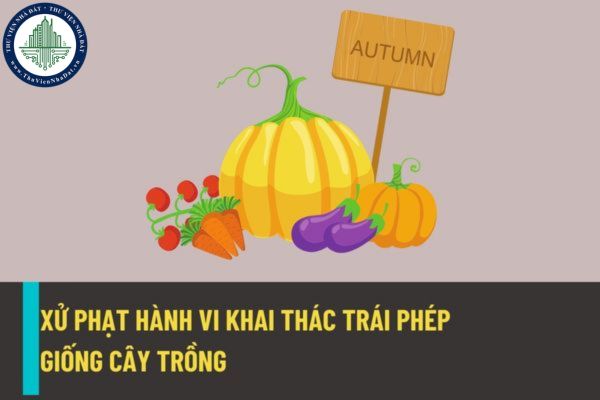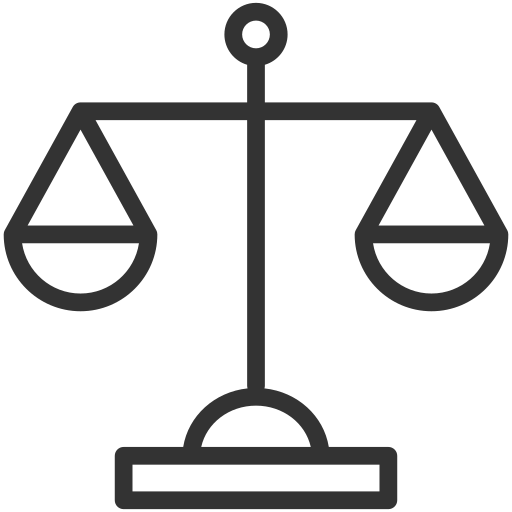Khai thác trái phép giống cây trồng thuộc danh mục loài nguy cấp, quý, hiếm được ưu tiên bảo vệ sẽ bị xử phạt bao nhiêu tiền?
Nội dung chính
Khai thác trái phép giống cây trồng thuộc danh mục loài nguy cấp, quý, hiếm được ưu tiên bảo vệ sẽ bị xử phạt thế nào?
Căn cứ vào khoản 3 Điều 49 Nghị định 45/2022/NĐ-CP quy định như sau:
“Điều 49. Vi phạm các quy định về bảo tồn và phát triển bền vững các loài sinh vật
…
3. Hành vi khai thác trái phép giống cây trồng, nấm, vi sinh vật thuộc Danh mục loài nguy cấp, quý, hiếm được ưu tiên bảo vệ; tàng trữ, vận chuyển, mua bán trái phép giống cây trồng, nấm, vi sinh vật thuộc Danh mục loài nguy cấp, quý, hiếm được ưu tiên bảo vệ ở ngoài khu vực di sản thiên nhiên, bị xử phạt như sau:
a) Phạt tiền từ 1.000.000 đồng đến 2.000.000 đồng đối với tang vật vi phạm có giá trị dưới 500.000 đồng;
b) Phạt tiền từ 2.000.000 đồng đến 5.000.000 đồng đối với tang vật vi phạm có giá trị từ 500.000 đồng đến dưới 1.500.000 đồng;
c) Phạt tiền từ 5.000.000 đồng đến 15.000.000 đồng đối với tang vật vi phạm có giá trị từ 1.500.000 đồng đến dưới 5.000.000 đồng;
d) Phạt tiền từ 15.000.000 đồng đến 30.000.000 đồng đối với tang vật vi phạm có giá trị từ 5.000.000 đồng đến dưới 10.000.000 đồng;
đ) Phạt tiền từ 30.000.000 đồng đến 60.000.000 đồng đối với tang vật vi phạm có giá trị từ 10.000.000 đồng đến dưới 20.000.000 đồng;
e) Phạt tiền từ 60.000.000 đồng đến 120.000.000 đồng đối với tang vật vi phạm có giá trị từ 20.000.000 đồng trở lên.”
Theo đó, đối với hành vi khai thác trái phép giống cây trồng, nấm, vi sinh vật thuộc danh mục loài nguy cấp, quý, hiếm được ưu tiên bảo vệ thì sẽ dựa vào giá trị của tang vật vi phạm để xác định mức xử phạt vi phạm hành chính theo quy định nêu trên.

Khai thác trái phép giống cây trồng thuộc danh mục loài nguy cấp, quý, hiếm được ưu tiên bảo vệ sẽ bị xử phạt bao nhiêu tiền?
Khai thác trái phép loài thực vật hoang dã thuộc danh mục loài nguy cấp, quý, hiếm được ưu tiên bảo vệ thì bị xử phạt bao nhiêu tiền?
Căn cứ vào khoản 4 Điều 49 Nghị định 45/2022/NĐ-CP quy định như sau:
“Điều 49. Vi phạm các quy định về bảo tồn và phát triển bền vững các loài sinh vật
…
4. Hành vi khai thác trái phép đối với gỗ, thực vật rừng ngoài gỗ thuộc Danh mục loài nguy cấp, quý, hiếm được ưu tiên bảo vệ ở ngoài khu di sản thiên nhiên bị áp dụng hình thức xử lý theo quy định của pháp luật về xử phạt vi phạm hành chính trong lĩnh vực lâm nghiệp. Hành vi khai thác trái phép loài thực vật hoang dã thuộc Danh mục loài nguy cấp, quý, hiếm được ưu tiên bảo vệ, trừ gỗ, thực vật rừng ngoài gỗ ở ngoài khu di sản thiên nhiên, bị xử phạt như sau:
a) Phạt tiền từ 1.000.000 đồng đến 2.000.000 đồng đối với tang vật vi phạm trị giá dưới 1.000.000 đồng;
b) Phạt tiền từ 2.000.000 đồng đến 5.000.000 đồng đối với tang vật vi phạm trị giá từ 1.000.000 đồng đến dưới 2.000.000 đồng;
c) Phạt tiền từ 5.000.000 đồng đến 10.000.000 đồng đối với tang vật vi phạm trị giá từ 2.000.000 đồng đến dưới 5.000.000 đồng;
d) Phạt tiền từ 10.000.000 đồng đến 25.000.000 đồng đối với tang vật vi phạm trị giá từ 5.000.000 đồng đến dưới 10.000.000 đồng;
đ) Phạt tiền từ 25.000.000 đồng đến 50.000.000 đồng đối với tang vật vi phạm trị giá từ 10.000.000 đồng đến dưới 15.000.000 đồng;
e) Phạt tiền từ 50.000.000 đồng đến 70.000.000 đồng đối với tang vật vi phạm trị giá từ 15.000.000 đồng đến dưới 20.000.000 đồng;
g) Phạt tiền từ 70.000.000 đồng đến 100.000.000 đồng đối với tang vật vi phạm trị giá từ 20.000.000 đồng đến dưới 30.000.000 đồng.”
Theo đó, hành vi khai thác trái phép đối với gỗ, thực vật rừng ngoài gỗ thuộc Danh mục loài nguy cấp, quý, hiếm được ưu tiên bảo vệ ở ngoài khu di sản thiên nhiên sẽ áp dụng hình thức xử lý trong lĩnh vực lâm nghiệp.
Đối với hành vi khai thác trái phép loài thực vật hoang dã thuộc Danh mục loài nguy cấp, quý, hiếm được ưu tiên bảo vệ thì sẽ căn cứ vào giá trị của tang vật để xác định mức xử phạt hành chính theo quy định nêu trên.
Vi phạm quy định về bảo tồn và phát triển bền vững các loài sinh vật thì có phải chịu xử phạt bổ sung hay không?
Căn cứ vào khoản 6 Điều 49 Nghị định 45/2022/NĐ-CP quy định như sau:
"Điều 49. Vi phạm các quy định về bảo tồn và phát triển bền vững các loài sinh vật
…
6. Hình thức xử phạt bổ sung:
Tịch thu tang vật, phương tiện vi phạm hành chính đối với trường hợp vi phạm quy định tại khoản 2, 3, 4 và 5 Điều này."
Theo đó, ngoài việc bị xử phạt hành chính thì căn cứ vào hành vi vi phạm về việc bảo tồn và phát triển bền vững các loài sinh vật để xác định hình thức xử phạt bổ sung theo khoản 6 Điều 49 Nghị định 45/2022/NĐ-CP
Mức xử phạt vi phạm hành chính theo các quy định nêu trên chỉ áp dụng đối với cá nhân. Trường hợp tổ chức vi phạm thì mức xử phạt hành chính sẽ gấp 02 lần so với cá nhân.
Nghị định 45/2022/NĐ-CP sẽ có hiệu lực từ ngày 25/8/2022.














